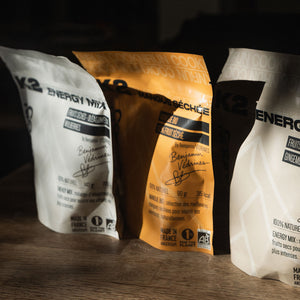eat to perform.
_______

1 - The importance of a suitable diet
During our discussions with the athletes and coaches we meet, we realized that the notion of nutrition adapted to sports practice was not so clearly defined in everyone's mind. Ultimately, we had to defend the very idea of sports nutrition. The idea that a so-called "ordinary" diet cannot be sufficient in itself. The idea that because of their practice, because of the goals they set for themselves, athletes cannot eat like everyone else.
To understand the importance of good nutrition in the performance process, you have to convince, give meaning, and be educational. You have to get a message across, backed by examples and arguments. Convince them that: what I eat has an impact on my performance level. Because food is full of preconceived ideas, aging perceptions, and commercial arguments. Because what we put on our plate is a personal matter, a space of freedom and pleasure, it can be difficult to step back and objectify one's own diet.

2 - The body adapts
Everyone agrees that athletes need fuel; they must eat "well." "Well" here does not have a qualitative character, but a quantitative one. We are talking about quantity of energy. "Eating well" is "eating a lot." We reason with a mechanistic vision, as if the body were a machine. A legacy of Descartes, the man-machine is a concept incompatible with the physiological reality of the organism during exercise. No, the body is not a machine. The main reason: the body adapts. The more I use a machine, the more it wears out. The more man uses his body, the more it adapts. Just draw a quick parallel between the muscular system and a car. If we use a muscle while respecting its function and its potential for adaptation, it will strengthen. Conversely, the more we drive our car, even while respecting its function, the more it will wear out.

3 - The importance of nutritional density
Let's talk energy. An internal combustion engine's function is to transform chemical energy into mechanical energy. That's why we put gasoline in our car. An engine can only do that. Our muscular system also has the function of transforming chemical energy into mechanical energy. It needs energy. But a muscle adapts, grows, heals, strengthens itself... As if the engine in our example repaired itself. Let's assume for a moment that it could. The engine strengthens itself, repairs itself, adapts. And we only ever give it gasoline. If it needs other elements and we deprive it of them, will it be able to fulfill its function? Thinking about nutrition solely through the prism of energy quantity means missing out on all the metabolic functions that don't require energy, but rather fundamental elements, called "essential" and called micronutrients.
From this fundamental notion of adaptation will flow the nutritional strategy. It is to support metabolic adaptation to exercise that we seek to fill the athlete's plate with a maximum of nutrients and that we speak of nutritional density.
Athletes must pay special attention to their nutrition to optimize their performance. Proteins, vitamins, lipids, amino acids, fiber, and minerals are essential to meet the nutritional needs associated with physical activity. A balanced diet, including fruits, vegetables, and dairy products, combined with regular physical activity, promotes a healthy metabolism and optimal athletic results.









